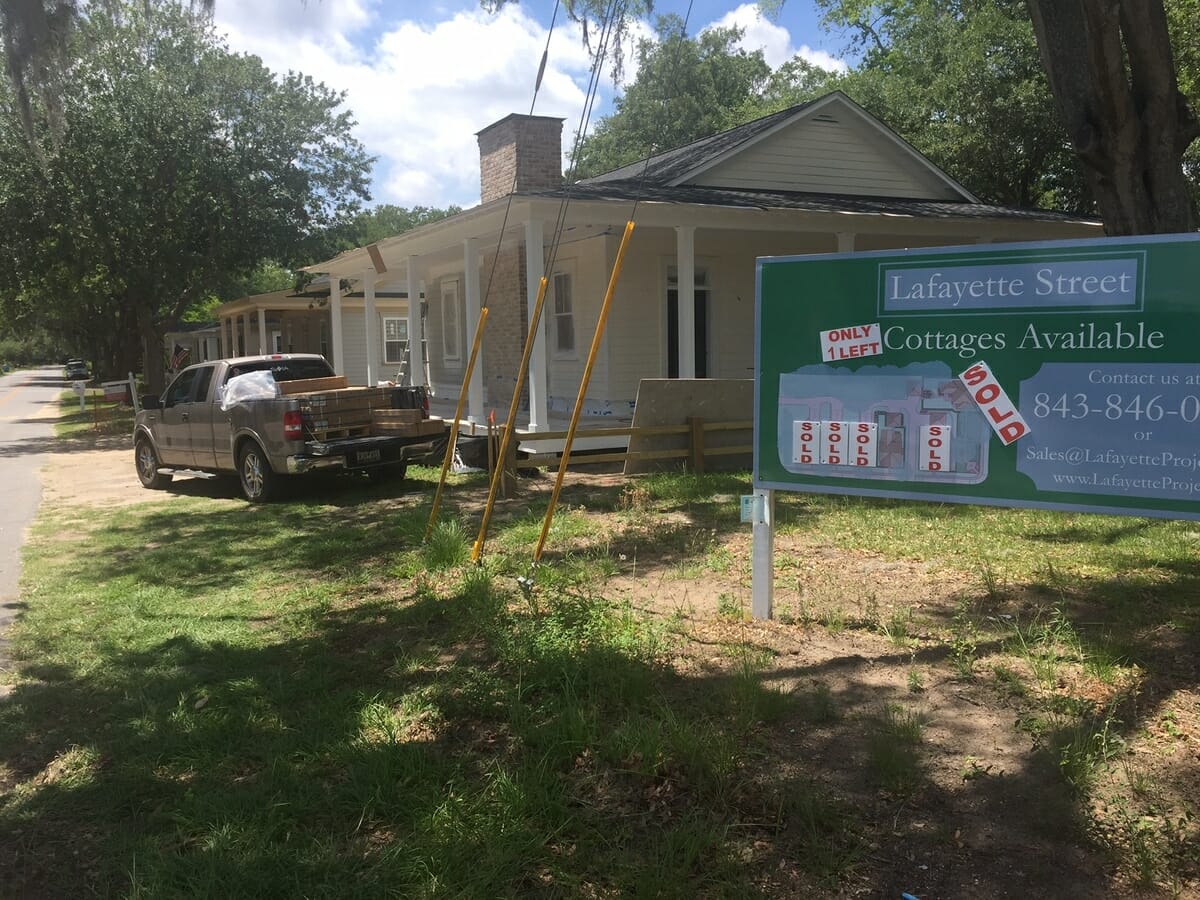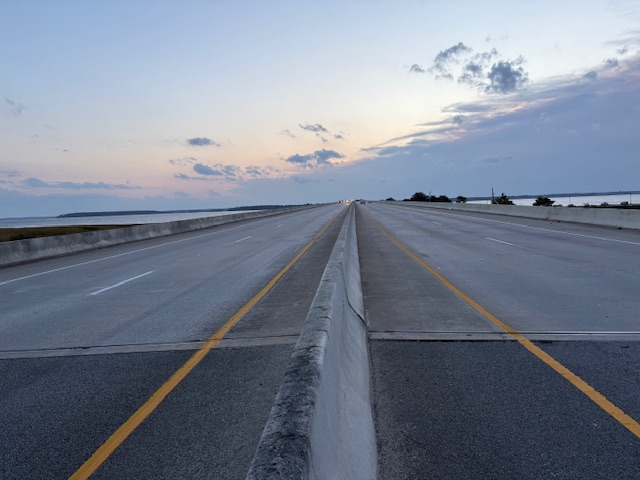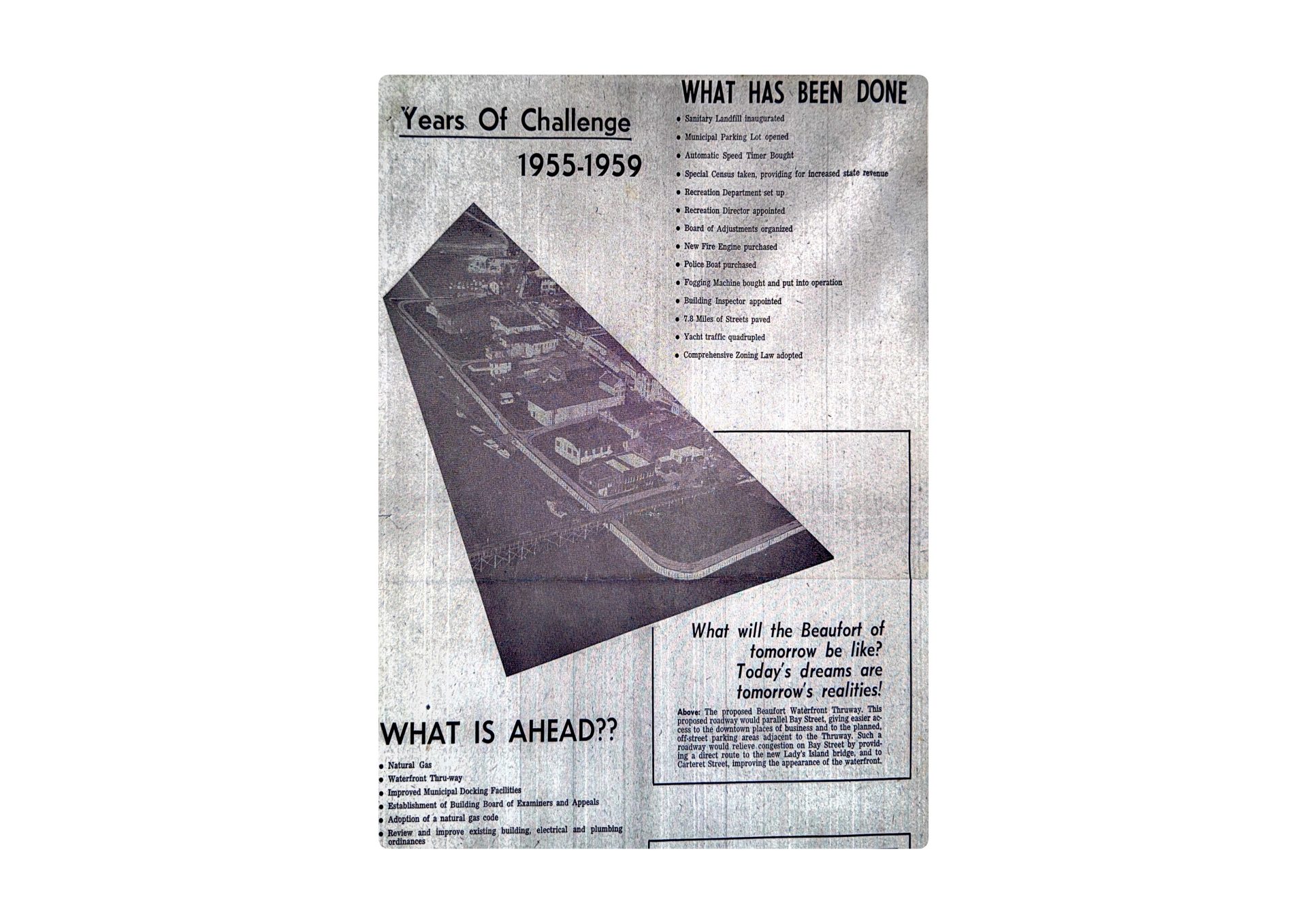Photo above: The Lafayette Street Cottages as they appeared last week: no curbs, no sidewalks, no street lamps.
By Bill Rauch
The PALS baseball season is in full swing and the Beaufort Police Department is doing their job patrolling the parking at Pigeon Point’s Basil Green Complex.
That’s news because this year there is no parking there. In 2012, the city of Beaufort sold — no, excuse me, GAVE AWAY — the city-owned Lafayette Street parking area back in the days when the mayor’s message of the season was that the city needs “workforce housing.”
It did and still does.
It has taken five years to see the buildings go up there, and over that period there have been many excuses offered for what finally became a political fiasco. But now this baseball season with buildings on the old parking site there’s no place to park. Adding insult to injury, the buildings are not, as was promised, either “workforce” or “affordable.”
There is still one townhouse there available … for $279,500, according to the Beaufort County Association of Realtors’ Multiple Listing Service. A couple of the ones that are now under contract were sold for $300,000-plus, real estate professionals say.
The median sales price for a Northern Beaufort County home in April 2017 was $217,500, according to the Beaufort County Association of Realtors’ website.
So what do we know about what went wrong with the city’s workforce housing project that turned out to be a luxury housing project?
First, for reasons that have never been adequately explained, the city put the project out to bid and then when the bids came in they didn’t take the high bid. In doing so they left at least $50,000 of the taxpayers’ money on the table, according to people who are familiar with the project’s bids.
That’s just the beginning.
The property that was the subject of the bidding was four adjacent Lafayette Street lots, or nearly an acre, facing on a park. If the city had wished simply to liquidate the ball field’s parking area, they could have auctioned it off and gotten up to $200,000, real estate professionals say, especially considering that those bidders would have been assured by the city, as were the bidders who answered the 2012 Request for Proposals (RFP), that the four lots could be subdivided into six.
The city took the haircut (in that they received nothing for the land, the transaction might better be described as a “head-shaving”) because its leadership thought — or at least they said they thought — they were subsidizing a workforce housing project, meaning broadly that the townhomes to be built there would be affordable for nurses, or firefighters or teachers.
The 2012 RFP is replete, for example, with affordable housing guidelines, definitions and other related financial information.
The city clearly provided the $200,000 subsidy so that the end product would be affordable.
But bona fide workforce or affordable housing price points would be 35-45 percent of what the Lafayette Street units are selling for.
A 2014 city press release that was bragging on the results before the final sales prices were known tells it all: “City leaders, through the Beaufort Redevelopment Commission, in 2012 sought proposals from developers to create affordable and appropriate housing on the then city-owned vacant land.”
As the project bogged down and became increasingly embarrassing, later portrayals sought to spin the project as one that was initiated by the city’s Redevelopment Commission, but the 2012 RFP is careful to state that “Final approval (of the bids) rests with the members of the City Council of the City of Beaufort at their sole discretion.”
Apparently there were no timelines or purchase price ceilings placed on the deeds or into the final contract of sale. Or if there were, there’s been no word to date of any lawsuit to be brought by the city to recover damages based on those breaches.
The 2012 RFP also called for streetscape improvements — e.g., streetlights, curbs and sidewalks — but there’s no sign of them either.
With all the expertise that is available to City Hall, real estate professionals ask, how could the city have gotten such a simple transaction so wrong?
The taxpayers may care, or maybe they’re used to it.
But the Basil Green fans really wish they still had a place to park when they go to watch the youngsters play ball.
Bill Rauch was the mayor of Beaufort from 1999-2008. Email Bill at TheRauchReport@gmail.com.





